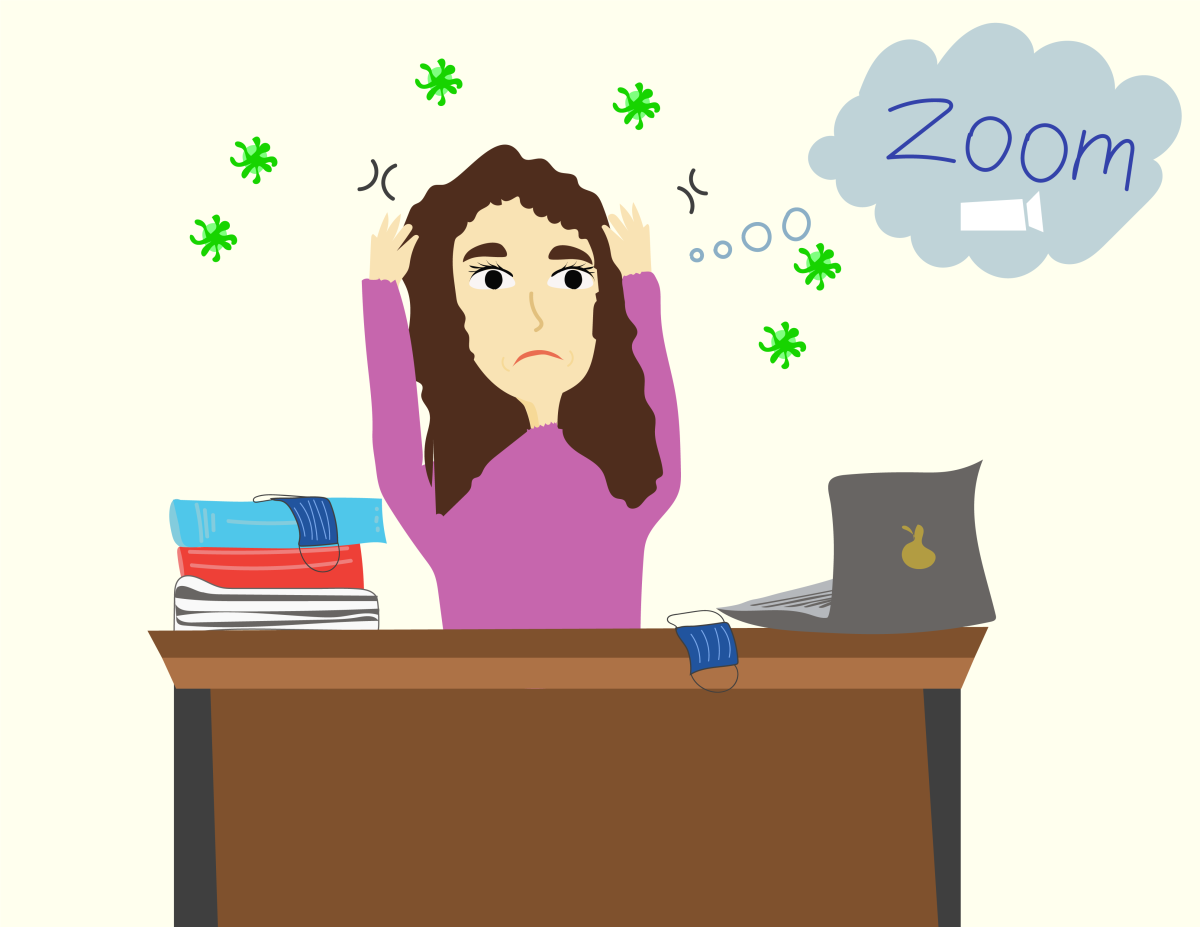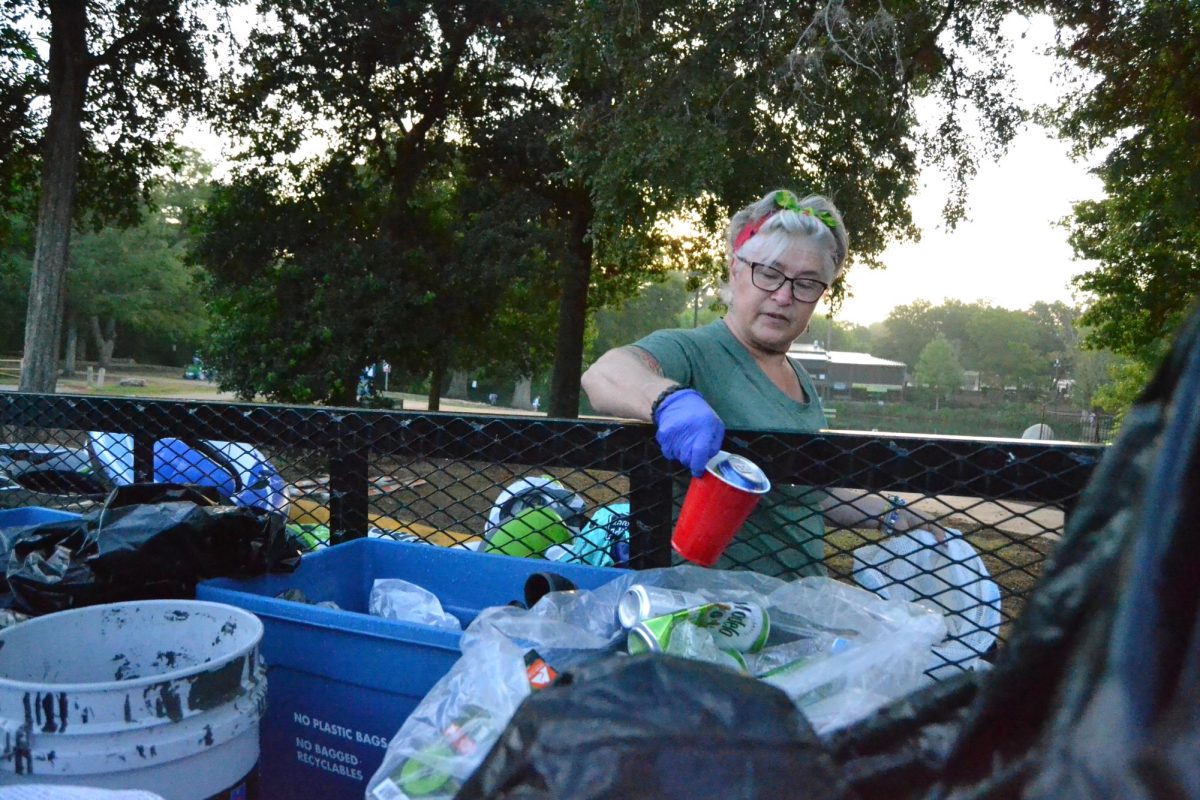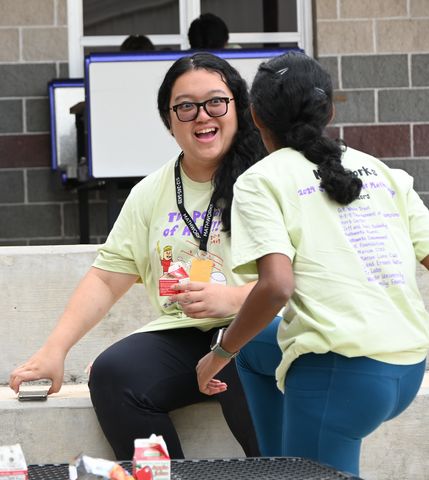As the spring semester begins and Texas State returns to a temporary remote learning experience, some students are worried about facing familiar challenges that arose during previous virtual semesters.
On Jan. 6, President Denise Trauth announced the move to an online format for most classes for the first two weeks of the spring semester. According to the announcement, the decision was brought on by the new Omicron variant which continues to spread rapidly around Texas.
Lyla Keizer, a psychology freshman, said she is worried about what online classes would do to her mental health due to not being able to interact with her classmates in the same way as in an in-person class.
“I’m kind of sad and disappointed that Texas State has chosen to temporarily go online,” Keizer said. “But I know it’s because they want everyone to be safe. I really enjoy being on campus and connecting with other people. I’m hoping we’ll be able to go back soon.”
The recent move to the online curriculum format is reminiscent of the abrupt change in the spring of 2020 where students left for spring break and never returned to campus again that semester due to the pandemic. Keizer hopes this semester will not be a repeat of spring 2020 because, based on high school experiences, she discovered how online classes negatively impacted her mental health.
“I love being with other people,” Keizer said. “I think that as humans we need each other, and we need social interaction to really thrive. It affected me when I wasn’t able to do that. I wasn’t as happy as I was before when I was around people which is kind of sad.”
Recent studies from researchers in the Department of Industrial and Systems of Engineering at Texas A&M have shown that 71% of college students have had their mental health impacted by the pandemic and 91% of college students have expressed fears over the health of their family members.
For Lilyanne Tisdale, a computer science senior, the pandemic’s impact on her social life has been difficult. She said she is nervous for this upcoming semester and fears online classes might negatively impact her ability to learn in more challenging classes. Additionally, she worries virtual classrooms might affect her social interactions.
“I used to be a very social person, and then I had to learn how to be okay being alone,” Tisdale said. “Now it’s a thing of trying to get myself to go back out, but then I’m anxious. I don’t like being around people. It’s weird. I used to be so social and now I’m like ‘I’ll just stay at home.'”
When it comes to physical health, Tisdale said she is thankful none of her close family members have been infected with COVID-19 although discussion of the virus has caused some divides that have largely impacted her mental health.
“It’s affected my mental health because I’m having to worry about what family members care about COVID … and what I can and can’t talk about around certain people,” Tisdale said.
For some students at Texas State, starting college during a pandemic was no easy feat. Juliana Gonzalez, an exercise and sports science freshman, said the pandemic made her feel like she was missing out on part of the college experience since it was harder to meet new people when class was on Zoom or if those around her were covered by a face mask.
“It was kind of a rollercoaster,” Gonzalez said. “There were days where I was excited to be at home and happy to be chilling but then I felt like I was missing out on life. One of the things I was excited for about college was meeting new people.”
While the stress of online classes and living through a pandemic is a burden, students also realize the importance of taking care of themselves during tough times. One of the ways that Gonzalez cares for her mental health is by staying active.
“I started going on walks around my neighborhood,” Gonzalez said. “It was nice to see the sunset after staring at a computer all day. That was really nice. During this fall [semester] I started taking yoga classes and cycling classes and just different ways to find movement in that. Honestly, just taking a walk around campus was really nice especially in the mornings for the sunrise.”
Students have also found connecting with friends was another way to improve their mental health as they navigate the uncertainty of the pandemic.
“I would write letters to my friends,” Keizer said. “My friends both in state and out of state. That kind of allowed me to think about other things besides the pandemic. It was a way for me to connect with my friends in a different way. There’s just something special about sending and receiving letters that we don’t often have nowadays.”
For more information on mental health resources such as group and individual therapy, visit Texas State‘s Counseling Center.
Students face mental health concerns as new semester begins
January 20, 2022
Donate to The University Star
Your donation will support the student journalists of Texas State University. Your contribution will allow us to purchase equipment and cover our annual website hosting costs.



















